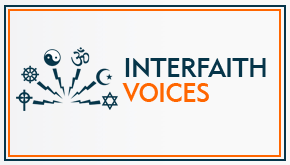This week on Interfaith Voices:
Pentecostalism finds rapt audience in Brazil’s working, middle classes – and even its ‘killable people’
In the latest episode of our God and Government series, supported by the Henry R. Luce Foundation, we travel to Brazil, the world’s largest Catholic country. Big changes are underfoot and the country is no longer Catholic majority. The 20th century saw an enormous rise in evangelical Christianity in Brazil, specifically Pentecostalism. Sociologist Andrew Johnson of Metro State University embedded himself in the prisons of Brazil to learn why the most marginalized people in the country are so drawn to the Pentecostal message. Then, we learn about the legacy of Catholicism and Protestantism in Brazil, and how the religious landscape has changed over time, from professor Andrew Chesnut of Virginia Commonwealth University.
Andrew Johnson, law enforcement and criminal justice professor at Metropolitan State University and author of If I Give My Soul: Faith Behind Bars in Rio de Janeiro, soon to be a documentary
Andrew Chesnut, professor of religious studies at Virginia Commonwealth University and author of Born Again in Brazil: The Pentecostal Boom and the Pathogens of Poverty
Evangelicals in Brazil turn the political tide
The evangelical Christian block makes up one third of Brazil’s Congress, and one particular Pentecostal church has been effective at mobilizing its voters: the Universal Church of the Kingdom of God. Last year, UCKG bishop Marcelo Crivella became the first bishop of a Pentecostal church to be elected mayor of a major Brazilian city — in this case, Rio de Janeiro. And as more evangelical leaders come into power, politics in Brazil are starting to shift toward the right. Reporter Catherine Osborn brings us a story from the field, which examines whether Crivella is really keeping church and state separate as mayor.
Catherine Osborn, correspondent in Rio de Janeiro.
Batalá Washington brings Afro-Brazilian beats to DC
Not everyone in Brazil is Catholic or Protestant; about three to four percent of Brazilians practice folk religions, which mesh the worship of traditional African deities with Catholic practices. A form of samba called samba reggae that originates in the area of Brazil with the most African descendants, Bahia, uses rhythms that correspond to these deities, or orishas. But samba reggae is a style of music anyone can enjoy, and people all around the world are doing just that. Producer Melissa Feito brings us a story of an all-women’s band called Batalá Washington that’s celebrating Afro-Bahian culture and the strength and creativity of women in DC.
Watch a mini-documentary about Batalá Washington here or a video from a 2018 performance here.



